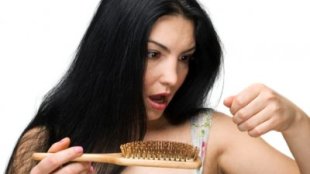* Take your time. Your partner may be anxious to make love, but he will need to take a deep breath and be patient. You mustn't have sex until you are ready in both body and mind. Otherwise, you may do irreparable damage to your relationship.
*Be creative. Perhaps you can try taking a bath or shower together. This will inject some fun and excitement into your love life, making it new and irresistible.
*Use contraception. Don't count on nursing or just having delivered as factors that can protect you against another pregnancy. Don't look back with regret because you took a risk.
Alone Time
*Schedule "alone time" with no sexual strings attached. You may not feel like being close to another human being after you've been with your baby all day and sometimes all night, but make the time to snuggle with your partner. The thing is, he's left out of all this physical closeness and he's hurting. Spending time together just being warm and cuddly can help breathe life back into your relationship while you're waiting on the okay from your doctor to resume relations.
*Talk to him about what it feels like to be the mother of a new baby and listen to him talk about how his life has changed since the birth, too.
*In assessing the value of property, there are three things to know: location, location, location. In postpartum sex, there's a different three: lubrication, lubrication, lubrication. Your hormones are in flux, estrogen levels have dropped and it's common to experience vaginal dryness as result. Breastfeeding is going to suppress your estrogen levels until up to six months after you wean your baby. If you're on the pill, you may experience a similar reduction of vaginal secretions. In this case, your doctor may be able to switch you to a different type of pill or you can try a different form of contraception.
Fearing Pain
*Keep the lines of communication open between you and your partner. You may be afraid that making love will cause pain. Tell your partner what you're feeling. Otherwise, he may come to believe that your avoidance of him is about something he's done, or about a change in the loving feelings you share. Let him know what you're thinking so he won't take your lack of desire for sex as something personal—something about him.
Postpartum Hair Loss: It's Normal!
This post was written by Jessica McFadden. Photo credit: iStock Photography

A few months after a woman has had a baby is usually not a gal's hottest time. She is sleep deprived, has loose skin and extra pounds hanging around her midsection, and if she is nursing she is serving as a walking milk truck. But at least she still has that thick, lustrous hair leftover from pregnancy, right?
Wrong. In fact, her hair very likely is falling out...sometimes in clumps.
Is this a dirty trick of Mother Nature? A sick joke? The side effect of all those salads you're consuming to slim down to your pre-pregnancy dress size, or those deliciously deserved glasses of wine after baby finally goes to sleep?
Nope, it's totally normal. Technically, your hair is just going back to its normal, pre-pregnancy state. During pregnancy the extra estrogen in your system is responsible for less strands ending up in your brush and down the shower drain. The average non-pregnant woman loses about 100 strands a day, but while you are pregnant you retain more of those precious hairs.
But when your hormones post-baby begin to normalize, those extra hairs you would have normally lost decide to jump ship...seemingly all at once. This post-partum hair loss does not occur in all women but does occur in most. It is most noticeable in women with long hair and typically begins three or four months after birth.
Thankfully the hair loss should stabilize in a few months and your locks will resume their usual rate of growth and everyday strand loss when your child is nine months to one year old. (Coincidentally, this is around the same time that you will actually recognize your naked body as your own when you exit the shower).
In the meantime, talk with your hair stylist about cuts that will minimize the appearance of your temporarily thinner hair. If your hair loss was centered around your hairline, it might be a good time to try sexy long bangs. If you have already been contemplating a wash-and-wear pixie, shorter cuts may mask those lanky locks hanging down your back.You can also experiment with hair accessories and hair thickening products. Bumble and Bumble Thickening Spray is a longtime favorite of beauty experts, as is Alterna's Hemp Thickening Compound.
You should also continue striving for a healthy diet and taking your prenatal vitamins or a daily multivitamin recommended by your doctor. Those vitamins and minerals that were good for your growing baby such as iron, B12, biotin, omega-3s and healthy proteins are also essential for healthy hair growth.
And as a fellow three month post-baby mama who is currently finding handfuls of hair on her pillow, in her hairbrush, even right now on her laptop keyboard (!), I personally recommend that nightly glass of wine.
No comments:
Post a Comment